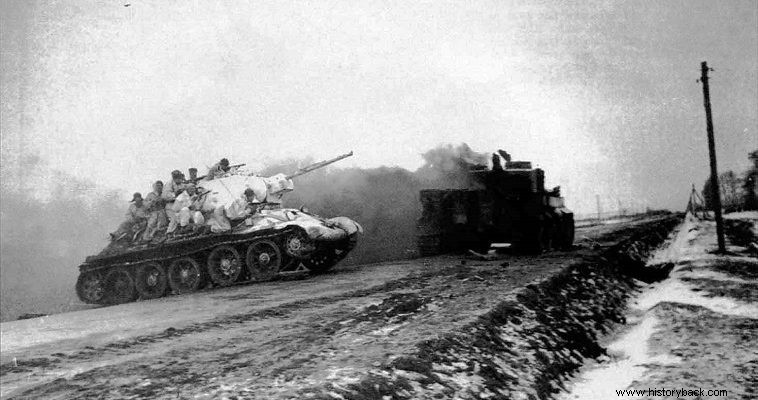
"Wars are decided by one side or the other which recognizes that it is impossible to prevail", said Hitler. It was his new strategic doctrine, Lydia Lithos, that he thought up and began to implement in 1944 on the brink of defeat.
On this dictum rested the entire edifice of German strategy in the winter of 1944. Hitler knew that Germany was incapable of victory. But he believed that he was at least in a position to not allow the opposing coalition to win either.
He considered a strategic 'draw' possible, a serious bruising of his opponents which would force them to ask for a peace treaty from a Germany they could not defeat. Hitler also correctly predicted the coming crisis between the US and the Soviet Union. But the bad thing for him was that the Allies proved determined to stick to their primary objective - the subjugation of Germany.
Having achieved this they had all the time to clash with each other if they ultimately wished to. With this reasoning, the Ardennes offensive was launched, which was doomed to failure due to the lack of fuel.
Despite the failure in the Ardennes, Hitler and his close associates did not hesitate to launch new attacks in Alsace which also failed. These attacks really drained whatever vitality the German Army still had at the time.
The Eastern Front demands
And while all the reserves, the last they had, were headed west and towards the crash, on the Eastern Front the flow of reinforcements was the least possible. The Soviets had gathered such strong forces there that it was impossible for the German Army to repel them.
The only sensible plan , according to the Chief of Staff, at the time of the German Army (OKH) General Heinz Guderian, was for the German forces to engage in a maneuvering battle, applying the principles of elastic defense.
But Hitler had the opposite opinion. In fact, when General Reinhart Gehlen, head of intelligence for the Eastern Front, drew up a report detailing the extent of Soviet preparations for their upcoming attack on German positions, Hitler not only called it a forgery, but ordered the incarceration of the general in an insane asylum!
"But didn't you understand that this is the biggest bluff since the time of the Mongols?", screamed Hitler... Guderian, however, was not convinced by his "argument", but replied:"Put me in the madhouse too" because I completely agree with Geller's report"...
Eventually Geller escaped the asylum, but the German front did not escape the crash. As Guderian rightly stated to Hitler, "it collapsed like a house of cards at the first blow"
Soviet marshals Zhukov (1st Belorussian Front) and Koniev (1st Ukrainian Front) threw into battle 163 infantry divisions with 2,203,000 infantry, 4,500 tanks, 2,500 assault guns, 13,800 guns over 76mm, 14,800 mortars 5,000 anti-tank guns, 2,200 multiple "Katiusa" rocket launchers, while they had more than 5,000 aircraft for direct support.
Naturally the German positions were pulverized. In vain the small reserves Guderian had managed to gather tried to limit the extent of the disaster, since Hitler intervened disastrously there too ordering the concentration of reserves too close to the front line resulting in the reserves also being worn down during the initial enemy attack for no reason.
The German forces only at the two ends of the front, in the Baltic and in Hungary, still put up a strong resistance. The central sector of the Eastern Front had collapsed beyond repair. The Soviet phalanxes left a line of fire and blood in their path. It was as if a barbaric horde of warriors had once again invaded the Roman Empire.
Hitler himself often drew this parallel in the past by describing the "Russians" as barbarians. But now that the German land and the German people were paying with the same currency for the crimes that the Wehrmacht had repeatedly committed against Soviet civilians and prisoners, now the German dictator was farting.
